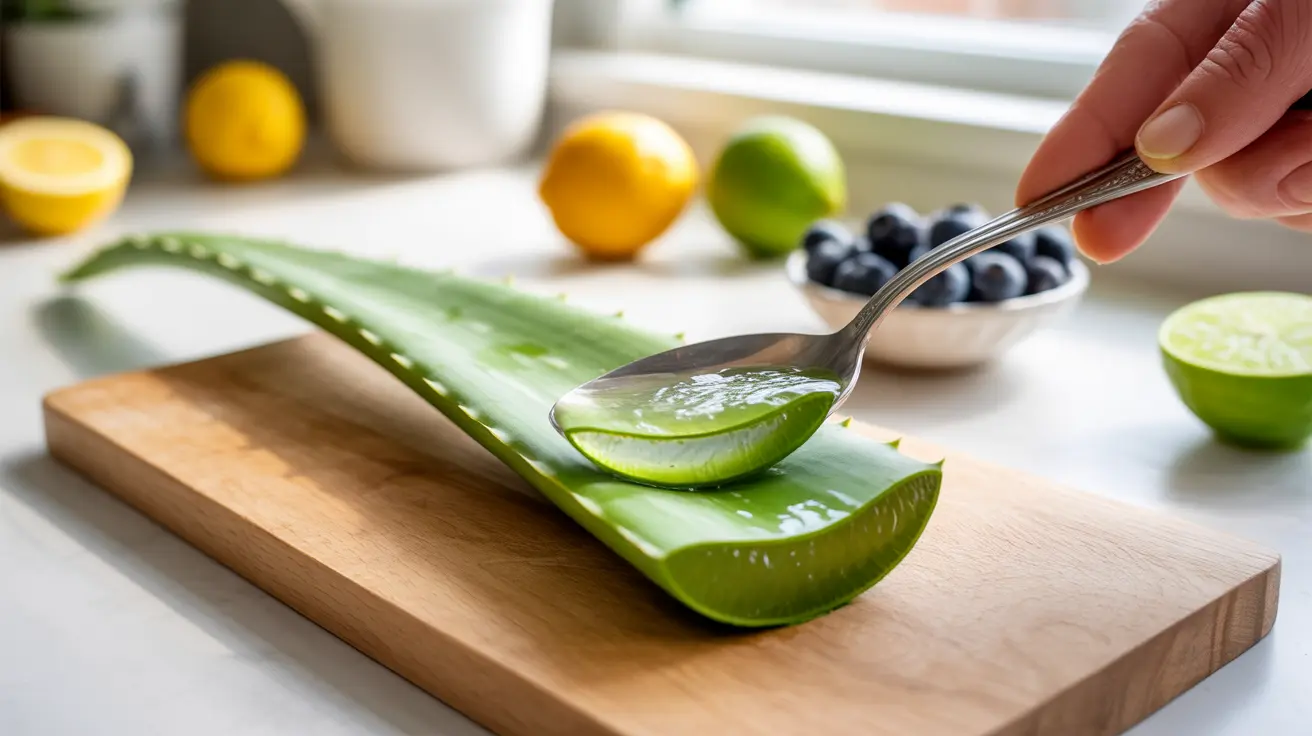Aloe vera is renowned for its soothing topical properties, but many people are curious about consuming this versatile succulent plant. While certain parts of aloe vera can be eaten safely and may offer health benefits, it's crucial to understand proper preparation methods and potential risks before adding it to your diet.
This comprehensive guide will explore everything you need to know about eating aloe vera, including safe consumption methods, preparation techniques, and important precautions to consider.
Understanding Aloe Vera's Edible Components
Aloe vera has two main parts that are relevant for consumption: the clear gel and the yellow latex. The gel is the clear, jelly-like substance found in the inner part of the leaf, while the latex is a yellow substance found just under the plant's skin.
The Safe Part: Aloe Vera Gel
The translucent gel from aloe vera leaves is generally considered safe for consumption when properly prepared. This gel contains beneficial compounds, including vitamins, minerals, and antioxidants. Many people incorporate it into smoothies, drinks, and other dietary preparations.
The Risky Part: Aloe Latex
Aloe latex, also known as aloe juice or aloe sap, contains compounds called anthraquinones, which can have powerful laxative effects and may be harmful when consumed in large quantities. This part should be avoided or removed during preparation.
Proper Preparation Methods
Safe consumption of aloe vera requires careful preparation to avoid the potentially harmful latex component:
- Cut the leaf lengthwise
- Remove the clear gel carefully, avoiding the yellow latex layer
- Rinse the gel thoroughly to remove any latex residue
- Cut the gel into cubes or slices for use
- Store properly in an airtight container in the refrigerator
Health Benefits of Aloe Vera Gel
When consumed properly, aloe vera gel may offer several potential health benefits:
- Digestive support
- Anti-inflammatory properties
- Immune system enhancement
- Blood sugar management
- Hydration support
- Antioxidant properties
Safety Considerations and Warnings
Despite its potential benefits, there are important safety considerations when consuming aloe vera:
- Always use fresh, high-quality aloe vera leaves
- Avoid consuming if pregnant or breastfeeding
- Start with small amounts to test tolerance
- Discontinue use if you experience adverse reactions
- Consult healthcare providers if taking medications
Frequently Asked Questions
Can you eat aloe vera safely, and what are the potential risks?
Yes, you can eat aloe vera safely, but only the clear gel portion when properly prepared. The main risks come from consuming the latex, which can cause severe digestive issues, dehydration, and electrolyte imbalances. Always remove the latex completely before consumption.
How do you properly prepare aloe vera for consumption to avoid its harmful latex?
To prepare aloe vera safely, cut the leaf lengthwise and carefully scoop out the clear gel, avoiding the yellow latex layer. Thoroughly wash the gel to remove any remaining latex. The gel can then be cut into pieces for immediate use or storage.
What are the health benefits and side effects of consuming aloe vera gel versus its latex?
Aloe vera gel may offer benefits like improved digestion, reduced inflammation, and enhanced immune function. The latex, however, can cause severe side effects including diarrhea, cramping, and kidney problems, and should be avoided.
Is it safe to eat aloe vera if you are pregnant or breastfeeding?
No, pregnant or breastfeeding women should avoid consuming aloe vera. It may stimulate uterine contractions and poses potential risks to both mother and baby. Always consult with healthcare providers before using aloe vera during pregnancy or lactation.
Can aloe vera interact with my medications, such as diabetes or heart drugs?
Yes, aloe vera can interact with several medications, including diabetes medications, blood thinners, and heart rhythm medications. It may also enhance the effects of certain drugs or interfere with their absorption. Always consult your healthcare provider before consuming aloe vera if you're taking any medications.




